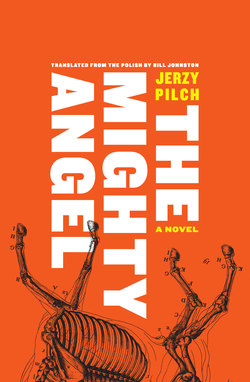Читать книгу The Mighty Angel - Jerzy Pilch - Страница 9
На сайте Литреса книга снята с продажи.
Chapter 5
ОглавлениеProlegomena to Ideal Order
It’s said that an excessive fondness for order indicates a poor condition of the nerves, and in my case this is in fact true: I have an excessive fondness for order and my nerves are in a state of utter disintegration. Physical objects are continually on the offensive, and they need to be opposed. Sooner or later this battle turns into a futile tilting at windmills, but for a while, in the modest confines of five hundred and twenty square feet (two rooms and a kitchen), objects can be tamed. In addition, a person quite simply forgets, forgets where things were put. In saying this I am not presenting some smug argumentation, I’m not puffing myself up like a third-rate thespian and announcing that for a mind preoccupied with inquiries of the greatest significance it is harmful to be thinking constantly of trivialities—this I am not saying, though it may be the truth, this I am not saying, though it almost certainly is not the truth. Take the apple that fell on Sir Isaac Newton’s head—was it or was it not a triviality? A cosmic triviality? There is no other kind of triviality than the cosmic kind. But, by a hundred thousand truckloads of beer! There’s no need to invoke the principles of the universe in defense of perpetually disappearing cigarette lighters, coin purses, documents, fountain pens and ball-point pens, manuscripts, typescripts, books, socks, ashtrays, scarves, gloves, et cetera. Just as there is no need to adduce in this matter, the matter of the disarray of objects, an argument concerning “inquiries of the greatest significance.” Constant attention to trivialities needn’t always disturb “inquiries of the greatest significance,” it’s enough for it to disturb everyday inquiries, and it does disturb them, it disturbs them calamitously, if one conducts one’s inquiries in complete sentences. I, for example, conduct my inquiries in complete sentences. More: with desperate obstinacy I keep myself alive by thinking in complete sentences. And this is no graphomaniac literary workout, though thinking in whole sentences is of prime significance for literature. It is with an acute sense of distress that I imagine the moment when the last paragraphs, sentences, and fragments of sentences will vanish from my head and the only thing left there will be illegible manuscripts, phantoms of names, specters, nothing more. The heroic-comic choice between dementia and death does not amuse me in the slightest.
When one thinks in whole sentences, then, however isolated, simple, and underdeveloped they may be, it is quite impossible to be thinking constantly about trivialities, about where one put one’s keys. One’s keys should always be where they are supposed to be. It may be that the constant formulation of sentences about lost keys would constitute a remarkable form of literature for the chosen few, but remarkable forms of literature for the chosen few need to be produced in moderation. Keys should be where they’re supposed to be. Keys should be where they’re supposed to be? Dear Lord, dear Lord, you who do everything for me, dear Lord, it that the reason I’m composing this treatise on my despair? Is it for this that I fritter away hours of my time with pen in hand? So my addled brain can discover the Newtonian truth that keys should be where they’re supposed to be? It’s for such a truth that I’ve wasted my life? It’s for such a truth that my hands shake and my liver horripilates? It’s for such a truth that I’ve descended to the bottom of the abyss? On the other hand, keys should be where they’re supposed to be. If Joanna Catastrophe had kept her keys where they were supposed to be, I would have loved her, she would have been the love of my life, the love of the evening of my life; we would have been together.
